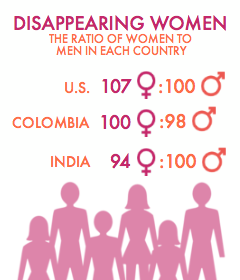
August 19, 2013 | Health and Well-Being, Economic Opportunity
The Diaper Dilemma
Diaper bank helps underserved mothers
Poop happens. But when the s**t doesn't hit the fan—in other words, when there's no diaper to catch baby's payload—that's when moms have a real problem.
It's no joke. As Joanne Goldblum, the founder of the National Diaper Bank Network, discovered in a recently released study she co-authored, 30 percent of mothers have been unable to afford an adequate supply of diapers at one point or another. The effect? Besides being unhealthy for the baby, the lack of diapers can have far-reaching consequence for the mother's career and income.
"For want of small things, very big things change," Goldblum says. Without a diaper, a child can't attend daycare, and the mom can't go to work.
"Missing one day in an hourly wage position often means you could lose your job. It certainly means you eat less for that week. And when you count on every penny to pay your bills, it's a slippery slope. Honestly, while I am not so crazy that I think that one diaper solves everything, I do believe that a diaper can make a difference between being able to work and not being homeless."
There are other repercussions. If a child smells, the mother can be kicked off public transit. Women have been arrested for stealing diapers. "Women end up in the criminal justice system" due to diapers, Goldblum says. Diapers, though, aren't covered in social initiatives for mothers like WIC or SNAP.
Goldblum recognized the importance of diapers a decade ago; as a social worker making house calls to recovering drug addicts and psychiatric patients, the lack of nappies showed up as a common theme among her clients. That's when she started the New Haven Diaper Bank, then one of a handful of diaper banks in the U.S.
Now, as head of the National Diaper Bank Network—a partnership of four diaper banks around the country and Huggie's "Every Little Bottom" initiative—Goldblum sees some progress, including the fact that there are more than180 diaper banks in operation.
"The biggest issue," says Goldblum, "is realizing that concrete things make a difference."